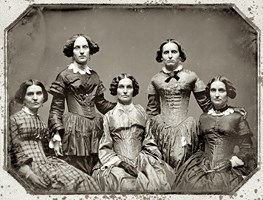 Brahmacharya is non-sensuality, a yama (code of conduct) that warns against attaching to sensual pleasure, be it drugs, food, or even extreme risk-taking (e.g., speeding on the freeway). However, brahmacharya is most often discussed in the context of sexual pleasure. As a requirement for reproduction and fueled by the cyclical or spontaneous release of hormones, sexual release is a universal animal trait, predating the species by a billion years. As both a primary instinct and a source of pleasure, sex is a function on which we can easily lose our grip.
Brahmacharya is non-sensuality, a yama (code of conduct) that warns against attaching to sensual pleasure, be it drugs, food, or even extreme risk-taking (e.g., speeding on the freeway). However, brahmacharya is most often discussed in the context of sexual pleasure. As a requirement for reproduction and fueled by the cyclical or spontaneous release of hormones, sexual release is a universal animal trait, predating the species by a billion years. As both a primary instinct and a source of pleasure, sex is a function on which we can easily lose our grip.
It is not that sexuality is wrong on any level, nor are food, drugs, or any other sensual pleasures, for that matter, but over-indulgence in any sensuality can lead to attachment and, ultimately, addiction, and thus a loss of our connection to the Source. In other words, when we become attached to or addicted to anything, be it a person, item, or experience, we merely emphasize our separateness. Everything we need is already within us. It is not material items or outer-directed experiences that fuel us, but instead, how they make us feel. It is why some people jump from experience to experience (or from person to person) to feel something inside themselves that they actually think is coming from the outside: power, intimacy, freedom, connection—all these things are what we feel when we do drugs, jump out of planes, or have casual sex.
But those feelings come from within—they are not outer-originating. Thus, ascribing them to outer items or experiences is one illusion that comes with a heavy cost: dissatisfaction, unfulfillment, and emotional pain. We suffer because the feelings we associate with the activity, person, or item are often short-lived and inevitably dwindle in time, increasing our sense of separation from the Source (and thus all other things in existence).
Further, all sense-indulging activities release our inner energies in a downward, or gravitating, direction. In other words, our energy condenses, gets heavy, and descends through physical and energetic channels. This is not always a bad thing, as physical manifestation or creation requires this downward movement of energy to form mass; however, when carried out in a non-creating manner or multiple times through overindulgence, it saps the energy from a person.
 Brahmacharya is the practice of harnessing our inner energies so that they may be consciously directed upward toward the brain. Moving our internal energy in this way toward the brain results in shifting our consciousness toward a higher awareness, a higher reality, if you will. We can also use this harnessed energy—emanating it outward—for the unique service we provide to the world.
Brahmacharya is the practice of harnessing our inner energies so that they may be consciously directed upward toward the brain. Moving our internal energy in this way toward the brain results in shifting our consciousness toward a higher awareness, a higher reality, if you will. We can also use this harnessed energy—emanating it outward—for the unique service we provide to the world.
Dispensing one’s energy in this manner creates several valuable effects. To begin with, others benefit from the outward-directed energy. It might be in a healing capacity or an awakening, or your energy might be nurturing to others—that will depend on your natural disposition. But any number of effects can occur from this outwardly directed energy, which could potentially strengthen another’s courage, persistence, or resolve—and people will feel it—they will feel inspired in your presence. It is what makes magnetic people so attractive—an inner-directed energy flowing outward, causing those within their sphere to vibrate at certain frequencies. Brahmacharya is one clear path toward developing this type of magnetism.
Again, this is not to suggest that any sense-indulgence is bad, particularly since anything can be done in the right consciousness, but it is the attachment or addiction to that sense-indulgence that leads to convoluted consciousness and dissipated energy. So, it is not just promiscuity or casual sex that can be problematic, but also overindulgence in masturbation or pornography. All these aspects of hypersexuality lead to a chronic loss of energy and an increased sense of separateness. The more we separate from everything else in our minds, the more we become distinct, the more we operate in ego, and this is the primary cause of suffering. Separateness leads to duality, and by necessity, we must experience both sides equally: pleasure and pain, pride and humility, desire and disgust—all opposites that make up the material dimension of mind and body. Only in oneness do these distinctions dissolve, and lack of brahmacharya is one definite obstacle in realizing oneness.
Brahmacharya, along with ahimsa (non-harming), is said to make up the Royal Virtues. While ahimsa is to respect and honor others, understanding that they are no different than us—we are all manifestations of the Absolute—brahmacharya is the respect and honoring of ourselves. Truth exists in the premise that we exchange energy with whomever we have sexual contact; it is one of the most potent methods of energy exchange between people. To convolute our own internal energy, randomly or devoid of emotional intimacy, is one of the most self-devaluing things we can do, particularly when we pair it with sensory self-indulgence (drugs/alcohol). There is simply no difference between what a chronic overeater or drug addict feels and what one feels as a result of multiple empty sexual experiences. No doubt, as with any drug, the first 5, 10, 100 times feel good—sex triggers a dopamine release, after all—but do it that one time too many, and you will feel the pain that often accompanies over-indulgence in this behavior.
 Any experience can be brought forth in the consciousness of ahimsa and brahmacharya, even lovemaking. Lovemaking takes on a sacred, divine air when carried out from a place of intimacy, confidence, and presence. It becomes a sharing of energy, love, and appreciation. This type of interaction can induce healing, self-worth, and genuine closeness. In essence, it represents the oneness our souls so desperately crave. Sexual intimacy in the spirit of brahmacharya is as uplifting as the lack of brahmacharya is degrading.
Any experience can be brought forth in the consciousness of ahimsa and brahmacharya, even lovemaking. Lovemaking takes on a sacred, divine air when carried out from a place of intimacy, confidence, and presence. It becomes a sharing of energy, love, and appreciation. This type of interaction can induce healing, self-worth, and genuine closeness. In essence, it represents the oneness our souls so desperately crave. Sexual intimacy in the spirit of brahmacharya is as uplifting as the lack of brahmacharya is degrading.
So, practicing brahmacharya means being respectful to and honoring yourself. It is not a morality trip—please feel free to test it yourself if you disagree—it is an understanding of the universal flow and exchange of energy. It has been said that those who practice the Royal Virtues become so internally strong that their thoughts begin to materialize immediately. Think about the depth of this: when your full consciousness is directed at non-harming of yourself and others, the purity of your thoughts has the power of instantaneous manifestation. If that doesn’t inspire you, maybe nothing will. But only when you master brahmacharya can you unleash this power. It’s worth a try.
 As I was sitting around the virtual universe, the topic of orgasm came up, specifically how to know one’s most optimal
As I was sitting around the virtual universe, the topic of orgasm came up, specifically how to know one’s most optimal  Obviously the upside for men is that the pleasures of the big-bang are a part of most, if not every, sexual act. For women, though, it takes work—in the form of
Obviously the upside for men is that the pleasures of the big-bang are a part of most, if not every, sexual act. For women, though, it takes work—in the form of 












